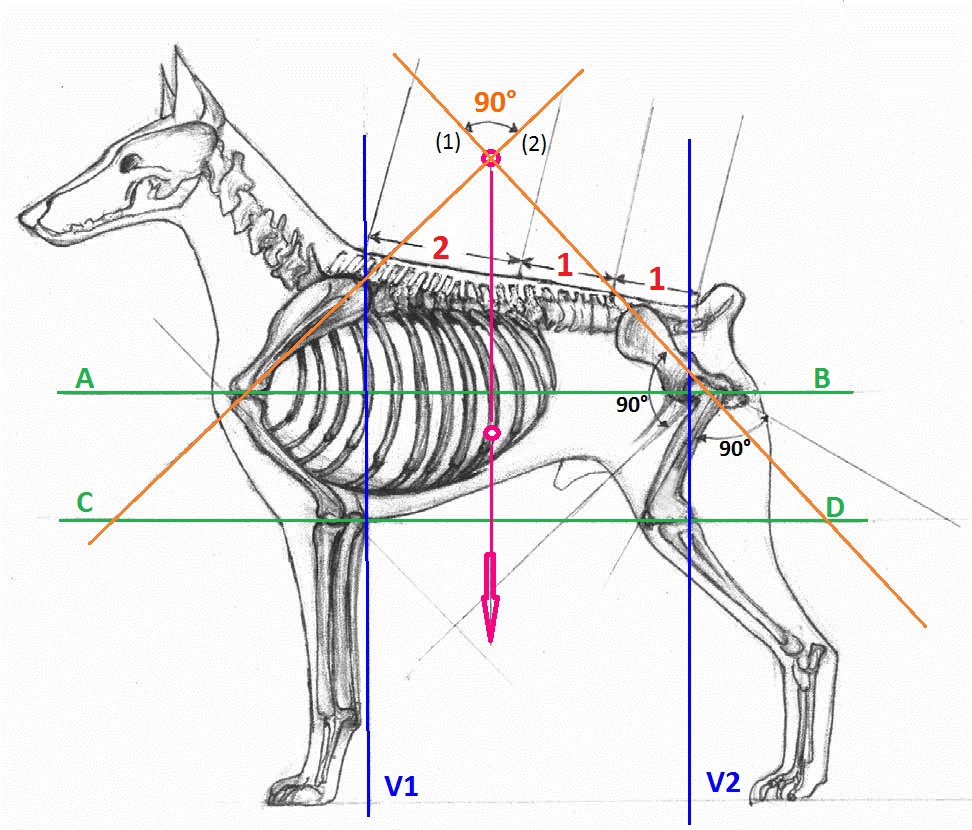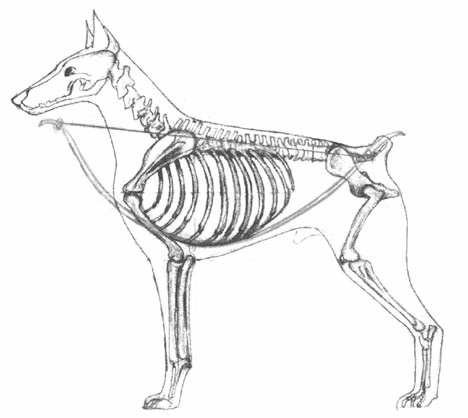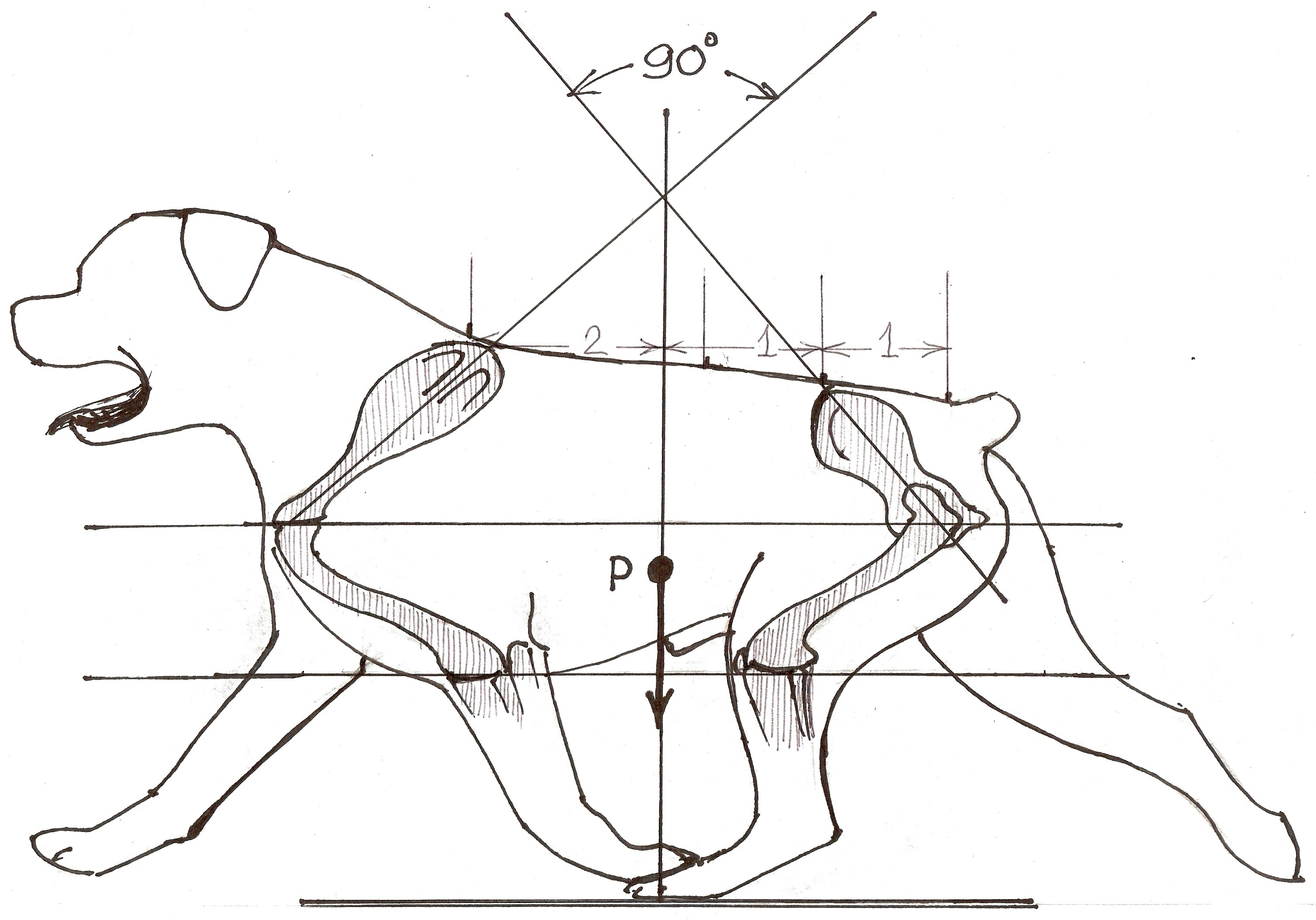WITH
Dr. EUGENE YERUSALIMSKY
THE GENERAL HARMONIC NET AS THE INSTRUMENT OF
UNDERSTANDING THE DOG CONFORMATION

We have started our researches which purpose was to reveal general quantitative indices corresponding to the correct dog conformation in 1964 on breeding Dobermanns in the Moscow Club of Working dogs
That idea had appeared because of the wide spread stubborn exterior demerits which could not be removed by traditional selection methods.
We have supposed that there are in existing some “super indices’ which are responsible for the better development of important characteristics like deep chest, strong back, correct angulations, etc.
That idea became quite innovative for cynology, but in a rather short time our assumption has been confirmed.

However that time we were looking for those general indices to be used as the selection instrument in the hope of solving the conformation problems on that way.
Those general indices have been discovered step by step during 20 years.
To explain the way how it has been done we have to tell about the Soviet System breeding specific of pure bred dogs.
That system was applied in the USSR according to the planned approach since the middle of the 1920th.
That meant that the Breeding committee empowered for the breeding of the entire brood bitches population was elected at the General Meeting of every individual breed local club.
Number of Dobermann brood bitches permitted for breeding a year that time varied in Moscow from 300 to 350.
That number can give the reader the idea of the initial statistics we have operated with since the beginning.
The very first general index (principle “2:1:1”, explanation is given below) as the hypothesis was considered in 1964 and statistically confirmed one year later after evaluating of reproductive material. The further use of that index for breeding has been fully confirmed by our initial assumption.
Index “2:1:1” turned out to be so much influential on the most important body parts improvement that over long time we haven’t used for breeding purposes any others even when we were continuing our researches.

Later on we still have found out that some conformation problems couldn’t be solved by the first general index.
Due to tenacious efforts over the long years of breeding and judging we have been succeeded in finding out those general indices efficient not only for Dobermanns, but also for Schnauzers, German Shepherds, American Cockers, Boxers and many other breeds.
In 1985 according to the results of our researches we created the system of postulates adequate to the ideal dog conformation named as the “Biomechanical Model of the Dog” (BMD).
We have used the BMD while judging different breeds and have proved statistically that the best dogs of the breeds overwhelming majority are in the accordance with the BMD postulates.
Use of the BMD as the system of unified quantitative general indices put in order has let the possibility to raise the evaluation objectivity of different breeds of dogs.
Besides that all use of the selective algorithm based on the BMD has provided the way to fasten the dogs conformation improvement, i.e., compactness, strong back, deep chest, correct format, correct limbs angulations as well as sound movement.